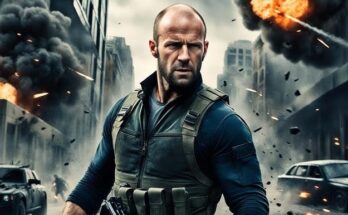Here’s what you need to know for a safe and pleasant flight.
After an early-morning alarm, a schlep to the airport, and a long security line, all you want to do is take a nap after you board your flight, right? Well, we have some bad news for you. It’s best to stay awake until after takeoff for two reasons: ear barotrauma and evacuation safety.
Ear barotrauma, also known as airplane ear, is the stress that builds in your ear due to differences in air pressure between your environment and your inner ear. This imbalance can cause your eardrum to bulge painfully. (It’s the same issue you experience when you swim to the bottom of a pool and feel pain in your ears — just with water pressure rather than air pressure.)
During takeoff and landing, air pressure changes rapidly inside a plane cabin, and our eardrums frequently struggle to keep up. Many travelers experience airplane ear on flights, leading them to feel pain or a sense of stuffiness in the ear. It can also cause slight hearing loss or muffled hearing.
Related: 33 Tips for Making a Long-haul Flight More Comfortable
Fortunately, it’s fairly easy to pressurize your ears manually by yawning, swallowing, or chewing — these actions open up the eustachian tube in each ear, which regulates pressure changes in the organ. Some people can even voluntarily control their tensor tympani, a muscle in the ear that can open up the eustachian tubes.
In most healthy adults, these tricks typically do the job. But there are factors that can sometimes increase the risk of airplane ear, including congestion due to illness, allergies, or an infection. People with smaller eustachian tubes, such as infants and young children, may also have trouble equalizing their ears.
Meet the Expert
Dan Bubb is a professor at the University of Nevada, Las Vegas, a former airline pilot, and an aviation expert.
Being asleep is a risk factor for airplane ear. “When we are asleep, we don’t swallow as much to equalize the pressure in our ears,” Dan Bubb, a professor at the University of Nevada, Las Vegas, tells Travel + Leisure. And the resulting pain is one reason it’s not great to sleep during takeoff and landing.
There is a solution: EarPlanes. These silicone ear plugs have a tiny ceramic filter that’s designed to help equalize your ear more slowly, reducing the likelihood that you’ll experience airplane ear. If you pop these in before takeoff and landing, you may be less likely to suffer from earaches in flight. (As a bonus, they also dampen noise — though that does make it difficult to listen to other things during your flight.)
:max_bytes(150000):strip_icc():format(webp)/TAL-airplane-take-off-DONTSLEEP1123-e7c26fd0395f48c0928baa114c5f663e.jpg)
That said, there’s a second reason you shouldn’t nap during takeoff and landing, and it has to do with your safety. Takeoff and landing are two critical phases of flight. They’re also the phases of flight during which your plane is statistically more likely to experience an accident, according to reports by both Boeing and Airbus, two of the largest aircraft manufacturers in the world.
“The other reason to avoid sleeping during takeoff and landing is to be fully aware of what is happening if there is an emergency and passengers and crew members need to evacuate the airplane,” says Bubb. If you’re asleep when an emergency happens, it might take you some time to get your bearings and react appropriately — and that could be a problem.
As such, it’s best to stay awake during takeoff and landing. But hear us out — we understand the exhaustion. If possible, take a short nap during the boarding process, then wake up just long enough for takeoff. After that, you’re good to go back to sleep until landing when it’s time to wake up again. You know the routine: seatbacks and tray tables up, seatbelts fastened, and carry-on luggage stowed. Then, hopefully, you’re headed off somewhere with a bed, so you can catch some well-earned z’s.



